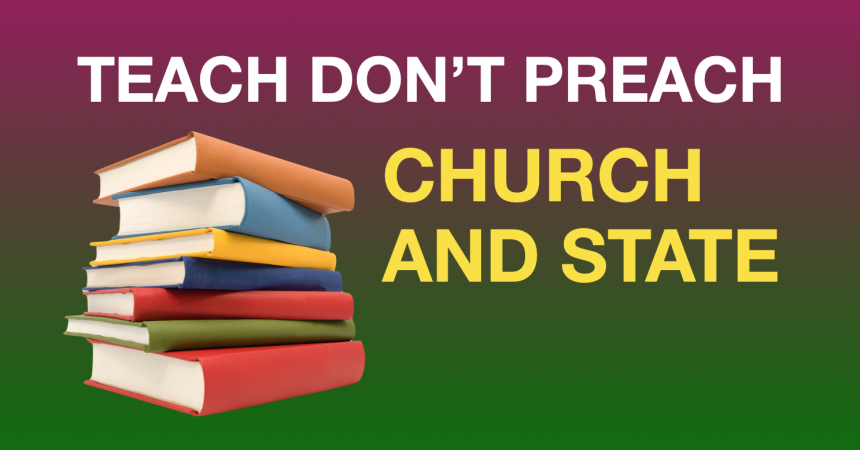
Richard Bruton supports the pre-evangelisation of minorities
In response to a recent Dail question from Ruth Coppinger on opting out of religion in schools the Minister for Education and Skills, Richard Bruton referred her to the Catholic Guidelines on the Inclusion of students of other faiths in Catholic schools which he said:
gives suggestions on developing policies and sharing best practice with regard to inclusion.
You can find the Response here
The Guidelines are what they say they are: the inclusion of other faiths. But the non religious are not a faith. The non-religious are now the second largest group in society after Roman Catholics but the Minister still refers to Catholic Guidelines that do not take into account the human rights of minorities and the non-religious in particular.
The extraordinary thing about these Guidelines is that they refer to pre-evangelisation (their words), in schools with a Catholic ethos. Pre-evangelising the children of minorities into the Catholic faith in publicly funded schools does not constitute respect for their parents’ convictions.
Parents have nowhere else to send their children to school. The Minister is “providing for” the education of minorities in schools with a Catholic ethos. There is a constitutional right to opt out of religion but over the years that has been undermined. Inclusion and respect mean whatever a patronage body says it means, and is not based on human rights law.
This raises the following questions
- Is it not possible for the Minister to draw up Guidelines himself, instead of referring to the Guidelines of the Catholic Church, that see publicly funded schools as a means of pre-evangelisation?
- It is not just a matter of opting out of the religion class. Do parents not have a right to opt their children out of any pre-evangelisation in publicly funded schools?
- How on earth is pre-evangelising the children of minorities in publicly funded schools seen as inclusive and respectful?
Extracts from the Catholic Guidelines
Catholic schools hold at the heart of their enterprise the nurturing of the faith of all of their students. This has become increasingly more challenging and teachers can no longer presume a commitment to faith in their students.
The general programme of the school will be considered as a form of pre-evangelisation. This promotes a human development that focuses on the emotional and aesthetic, thus enabling the young person to experience God at a deep and spiritual level.
Other students may come to the school with limited knowledge of the Catholic tradition, or with low levels of familiarity with Catholic liturgy and rituals. In this situation, the school acts in an evangelisation role. It helps them develop that knowledge. They are helped to reflect on their life experiences in the light of Christian revelation and invited to discipleship through a personal faith commitment.
Still others will come to the school having already made a significant commitment to their faith. They will come from supportive homes and parish communities. The school seeks to give special support to this group, and to help them explore, in a deeper way, the commitment of discipleship.
1.4 It should also be made clear that their son or daughter will be experiencing the values and ethos of the school in the day-to-day running of the school, not just in RE class.
1.7 Withdrawal from Religious Education can present a dificulty for the Catholic school, as Religious Education is at the heart of its enterprise. However, students who are withdrawn from formal Religious Education classes can be asked to use these classes to explore their own faith tradition or some philosophical text, rather than doing their homework.”
You can find the Catholic Guidelines here
Catholic Church Submission to NCCA
It is also significant that, in a recent Submission to the NCCA on the teaching of the proposed new course on ERB and Ethics, the Catholic Church stated that:
2. Pluralism and freedom of religion
These approaches require teachers to adopt and promote a pluralist approach to religion. This is an approach to religion that goes against the philosophical basis of Catholic religious education. Such a contradiction would place teachers in a very difficult position where conflicting philosophical approaches to religious education would have the potential to create significant confusion.
You can read about that in detail here
The Submission from the Bishops is still up on the NCCA website.
The Catholic Church is claiming that its schools are inclusive of all religions and none, while at the same time pre-evangelising (their words) minorities and rejecting the aim, which is in the curriculum, of pluralism. The Minister is promoting this as a guide to schools to put in place policy on opting out of religion.
This raises another question:
- Why is the Minister citing the Guidelines from the Catholic Church on inclusion in schools, when that same organisation ignores Primary School curriculum policy on pluralism and sees pluralism as undermining their educational philosophy?






0 Comments
No comments!
There are no comments yet, but you can be first to comment this article.